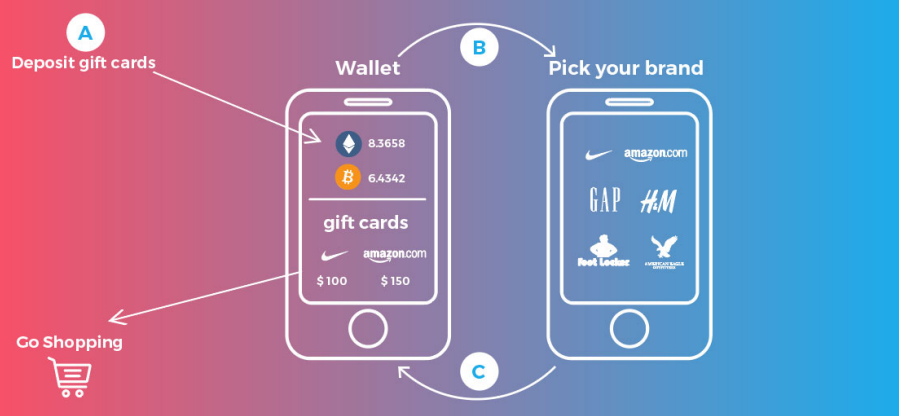There is a lot of buzz surrounding cryptocurrency and blockchain these days. Nearly every digital media outlet is discussing the details of what it is and how it works. But one thing that these conversations sometimes fail to address is what exactly cryptocurrency means to the average person and business. The complexity of blockchain encryption, coding, and stocks rising and falling has a very little effect on the everyday consumer.
Or so it seems.
Whether or not cryptocurrency will be around decades or centuries from now, it is already having an impact on business and customers alike. Though the concept of cryptocurrency seems complex, its application is actually quite practical and it has the potential to change the way that businesses and consumers interact on a daily basis.
Let’s discuss some of the ways that cryptocurrency is creating a new future for B2C companies and consumers alike.
1. Financial Security During Transfers
One of the most obvious benefits of cryptocurrency to both consumers and companies is the security it provides for data transfers. Safety and security is a major concern for everyone right now, especially with the numerous data breaches that have happened over the past few years.
These concerns have led 75% of consumers to believe that companies are not actively protecting their information, and therefore, they have diminished trust with many brands, as found by an infographic by Gemalto. This distrust is not without cause: many businesses do not have an effective system in place to ensure customer privacy protection.
Cryptocurrency provides a much safer method for data transmission, especially when it comes to financial information. Blockchain improves the security of sensitive customer information by breaking up the data from each transfer so that the information is never stored in a single place, which makes it less vulnerable to hackers and breaches. This provides customers peace of mind for online money transfers, which can mean a boost in customer confidence for businesses that implement this technology.
2. Easier Online Shopping
Another concern that cryptocurrency investors have is the limited liquidity of these assets. Their investment exists online, so it cannot be easily taken out of an ATM or a personal bank account.
While more businesses are offering diverse payment options that include cryptocurrency, not all online retailers will accept this kind of payment. However, one interesting and extremely practical use for cryptocurrency is transferring it into gift cards, as explained in a whitepaper by Zeex. This increases the liquidity of online currency by allowing consumers to easily turn it into usable funds for quick purchases.
Source: Zeex white paper
This makes the entire concept of using and accepting cryptocurrency on a regular basis much more applicable to both customers and B2C businesses. It benefits consumers by allowing them to use crypto funds for frequent purchases or to share funds with friends and family. Plus, it makes the transition to crypto-friendly transactions more attainable for SMBs.
3. Revolutionizing the Housing System
Real estate is another key industry tapping into the practical power of cryptocurrency. Traditionally, purchasing or leasing property is an expensive process that includes a lot of private data and financial transfers. This makes cryptocurrency and blockchain an obvious fit for both residential and commercial property acquisition. Real estate companies can use blockchain to set up secure payment options and ensure data security for all parties involved.
Cryptocurrency is also changing the way people rent and lease property, a topic that is incredibly relevant among Millennials and growing metropolises that are facing housing shortages.
Some startups are using blockchain-based tokens to create a network of luxury apartment locations in major cities. Members who use this cryptocurrency can easily rent property in various locations without having to go through the traditional application process. Every financial transfer is transparent and secure, and it allows frequent travelers to establish a home wherever their travels take them.
4.Optimized Advertising
76% of customers agree that personalized brand experiences impact their decision to purchase. However, creating customized and relevant content has been a great challenge for marketers, especially when consumers are growing more and more wary of sharing the kinds of data necessary for personalization.
Again, cryptocurrency and blockchain can come to the rescue here. One branch of cryptocurrency, known as “engagement tokens“ actually pays both consumers and advertisers based on engagement levels and relevancy. When a customer shares the content or comments on the post, they are rewarded with cryptocurrency. Marketers are similarly compensated, plus, they are provided with key data to show where they are receiving the best reactions. Additionally, these tokens can be used to purchase advertising space and improve ad relevancy.
Source: https://engagementtoken.com/wp-content/uploads/2018/03/Influencer.jpg
In Conclusion
As you can see, cryptocurrency is much more down to earth than it may seem. While there are definitely complexities to the subject, it certainly has the potential to be used by the everyday person who knows virtually nothing about coding and encryption technology. Thanks to these practical applications in everything from ecommerce to real estate, B2C companies can certainly benefit from this new wave of techy commerce as well.
The subject of cryptocurrency is virtually inescapable these days. Some believe it is the dawn of the future of economics, and others think it is just a bubble waiting to burst. So, while the future of cryptocurrency still remains to be seen, one thing is abundantly clear: cryptocurrency is here to stay, at least for now.

